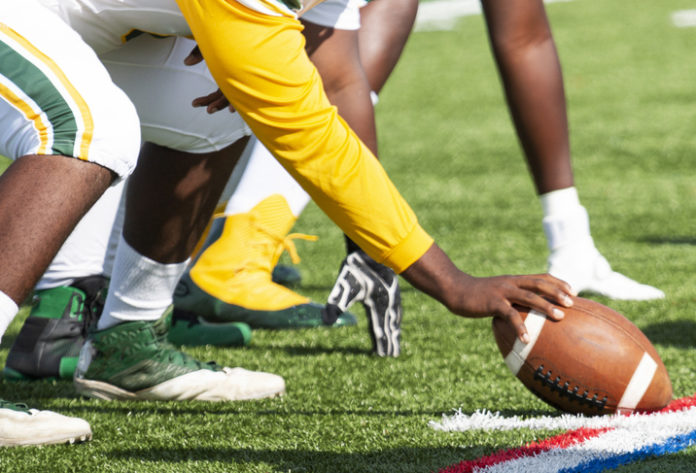College football players may be underestimating the risk they are at for sustaining injury or concussion, according to a survey.
“As athletes are asked to return to sport amid the coronavirus disease 2019 (COVID-19) pandemic, understanding whether they accurately appraise risk is of increased importance. If they misestimate their personal risk of well-understood hazards associated with football participation, it is likely that they may also misestimate the less well-understood risks associated with COVID-19,” the researchers explained.
Surveys were given to 296 current college football players on four teams representing three of the five most competitive conferences of the U.S. National Collegiate Athletic Association. The main outcome was athletes’ perceptions of their risks of concussion and nonconcussion injury compared to the individual likelihood of these risks.
Of the 296 athletes who responded to the survey, 265 filled out all of the questions relevant to the present study. About a third of respondents had sustained at least one concussion (n=100 [34%]); of the 289 athletes who responded to the question, 197 (68%) reported that they sustained at least one injury in the prior football season. Reasonably good fit was observed for logistic regression models of single-season injury (area under the curve [AUC], 0.75) and concussion (AUC, 0.73).
When looking at responses from the 265 athletes with full data available, 111 underestimated their risk for concussion (42%; χ2=98.6; P=0.003). Roughly the same proportion of athletes underestimated their risk for injury (n=113 [43%]), but this did not reach statistical significance (χ2=34.0; P=0.09).
When using a different analytic strategy, it was found that nearly all athletes underestimated their risk for injury (n=241 [91%]; Wilcoxon statistic, 7,865; P<0.001) and close to two-thirds underestimated their risk for concussion (n=167 [63%]); Wilcoxon statistic, 26,768; P<0.001).
The study was published in JAMA Network Open.
“Future work evaluating the mechanisms underlying this underestimation and the best ways to align risk perceptions with true underlying risks is warranted. However, it is necessary to consider what it means for athletes to be sufficiently informed in the context of college football and the level of risk that is acceptable for participation in a sport. This is made more salient with athletes assuming less well-known risks related to COVID-19 as they return to participation in college football amid the pandemic,” the researchers concluded.
Credit: Original article published here.


